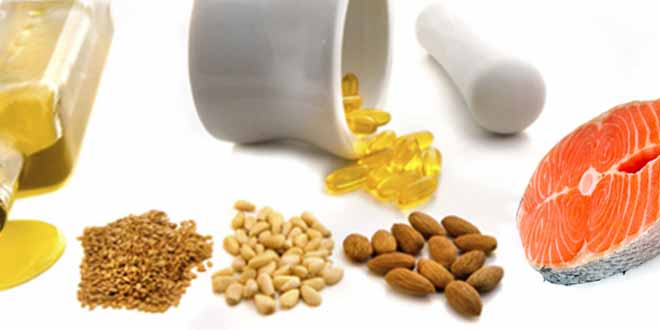
Health benefits of Omega-3-6-9 fatty acids
You’ve probably heard the terms “fatty acids” and “omega-3” before, but do you know what a fatty acid is and why its important? What about the different types of fatty acids, what foods you can naturally find in them and what are the health benefits?
Fatty acids are important for all systems of the body to function normally, including your skin, respiratory system, circulatory system, brain and organs. There are two fatty acid termed essential fatty acids (EFAs). EFAs have to be ingested. EFAs are the precursors of chemically related compounds called prostaglandins. If EFA is not supplied to the body, the body cannot synthesize prostaglandins. Prostaglandins play a key role in regulating many physiological process in the body such as controlling blood pressure, vascular damage in the brain and heart, preventing blood clot in the arteries, lowering cholesterol, uterine contractions during birth and menstrual cycles, and inflammation. The two essential fatty acids that the human body cannot produce are the omega-3 fatty acid and omega-6 fatty acid, which are important for brain development, immune system function and blood pressure regulation. Another fatty acid, Omega-9 can be made by the body if enough Omega-3 and -6 are present.
Omega-3 fatty acids
Omega-3 fatty acids are helpful in lowering triglycerides, decreasing the risk of death from heart attacks and strokes, decreasing blood pressure, decreasing inflammation naturally and improving brain function. It is recommended a diet in which fatty fish, such as salmon, herring, sardines and tuna be consumed atleast twice a week.
It can also be useful in supporting the following:
- Asthma
- Diabetes
- Arthritis
- Osteoporosis
- Some cancers
- Skin disorders
- High cholesterol
- Attention disorders
- Macular degeneration
- Digestive difficulties
Omega-3 fatty acids can naturally be found in:
- Grains
- Spirulina
- Brazil nuts
- Hempseed oil
- Mustard seeds
- Pumpkin seeds
- Chia seed oil
- Wheat germ oil
- Canola oil
- Green leafy vegetables
- Raw walnuts and walnut oil
- Flaxseeds or flaxseed oil
Omega-6 fatty acids
Omega-6 fatty acids are helpful in brain function, development and growth, skin and hair growth, bone health, regulating metabolism, and functioning of the reproductive system. They can be useful against diabetic neuropathy, rheumatoid arthritis, ADHD, breast cancer, allergies, eczema, high blood pressure and menopausal systems. Unlike omega-3 fatty acids, omega-6 can boost inflammation in the body.
You should be eating twice as much of omega-6 than omega-3 so that your omega-6 to omega-3 ratio is 2:1, but in today’s world of fast food, frozen entrees and high calorie snacks, it is not uncommon for most people to be getting 15 times more omega-6 than omega-3.
The best sources of omega-6 are seeds, nuts, and grains and green leafy vegetables like lettuce, broccoli, purslane and kale and in certain raw vegetable oils.
Omega-6 fatty acids are also naturally found in:
- Olive oil
- Wheatgerm
- Grapeseeds
- Pistachios
- Sesame oil
- Hempseed oil
- Pumpkin seeds
- Chia seed oil
- Sunflower seeds
- Cottonseed oil
- Raw nuts and seed
Omega-9 fatty acids
Omega-9, or monounsaturated oleic and stearic acid, is a non essential fatty acid produced by the body naturally when whenever there is enough of the omega-3 and -6 fatty acids present. However, if you do not have enough omega-3 and omega-6 than you must consume omega-9 from a diet that has omega-9. This fatty acid plays a role in promoting hearth health by lowering cholesterol and keeping the arteries from hardening, and also increase immune function.
Omega-9 fatty acids are naturally found in:
- Avocados
- Pecans
- Cashews
- Almonds
- Hazelnuts
- Pistachios
- Macadamia nuts
- Chia seed oil
- Olives and olive oil
